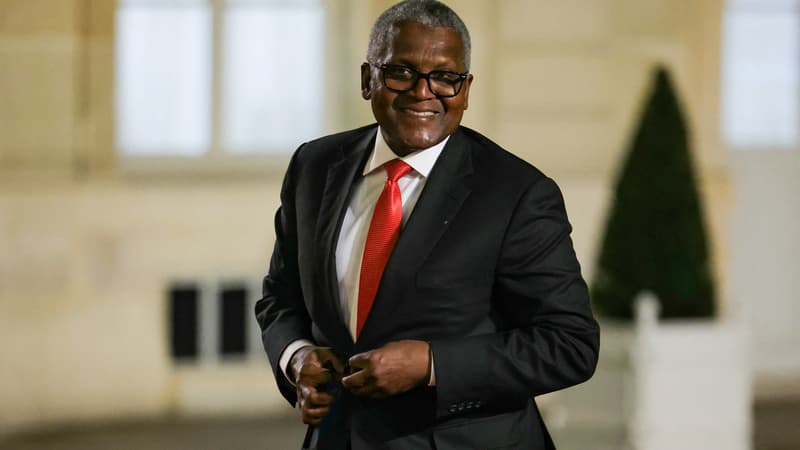The richest man on the African continent, Aliko Dangote, announced on Sunday that Africa’s largest refinery, located in Nigeria, will double its capacity to 1.4 million barrels per day in three years to make it “the largest refinery in the world.” “We are more than doubling the barrels… to 1.4 million from 650,000,” said Aliko Dangote, owner of this refinery, during a press conference in Lagos.
“Building the energy independence of our continent”
Before the private Dangote refinery opened last year, Nigeria had to import almost all of its fuels, despite its status as Africa’s largest oil producer. The country pumps an average of 1.5 million barrels of crude oil per day, according to OPEC, but is still far from its target of two million barrels per day. After years of neglect and mismanagement of public refineries, Aliko Dangote shook up the game of established players in this corruption-scarred petrostate and reduced gasoline prices for consumers.
The refiner, which also exports jet fuel mainly to the United States, Europe and Brazil, and which has sparked monopoly fears by becoming a powerful player, plans to list on the Nigerian stock exchange next year. “This is a step towards greater transparency and ownership of the market,” said Aliko Dangote.
Recent strike
Another Nigerian billionaire, Abdul Samad Rabiu, is building a second private refinery, BUA. In September, Aliko Dangote took the initiative to use his own natural gas trucks to distribute fuel in Nigeria, prompting a strike by a tanker truck drivers’ union, accusing it of requiring drivers to be non-union members when hiring.
A two-day strike, which had threatened a fuel shortage in Africa’s most populous country, ended on October 1 after government mediation. The Petroleum and Natural Gas Senior Staff Association of Nigeria (Pengassan) accused the refinery of dismissing 800 local workers for being members of the union and replacing them with 2,000 Indian workers.
Accusations described as “lies” by the refinery, stating that it had only fired a small number of employees for “acts of sabotage”, without giving an exact figure. Pengassan “agreed to begin the process of lifting the strike (…) while Dangote begins the process of transferring the dismissed employees to other companies in the Dangote group, without loss of salary,” the Nigerian Ministry of Labor announced on October 1.
Aliko Dangote on Sunday thanked the federal government for its role “in mediating our recent disruptions at the (refinery), linked to union activities and some attempts at sabotage.”
Source: BFM TV


